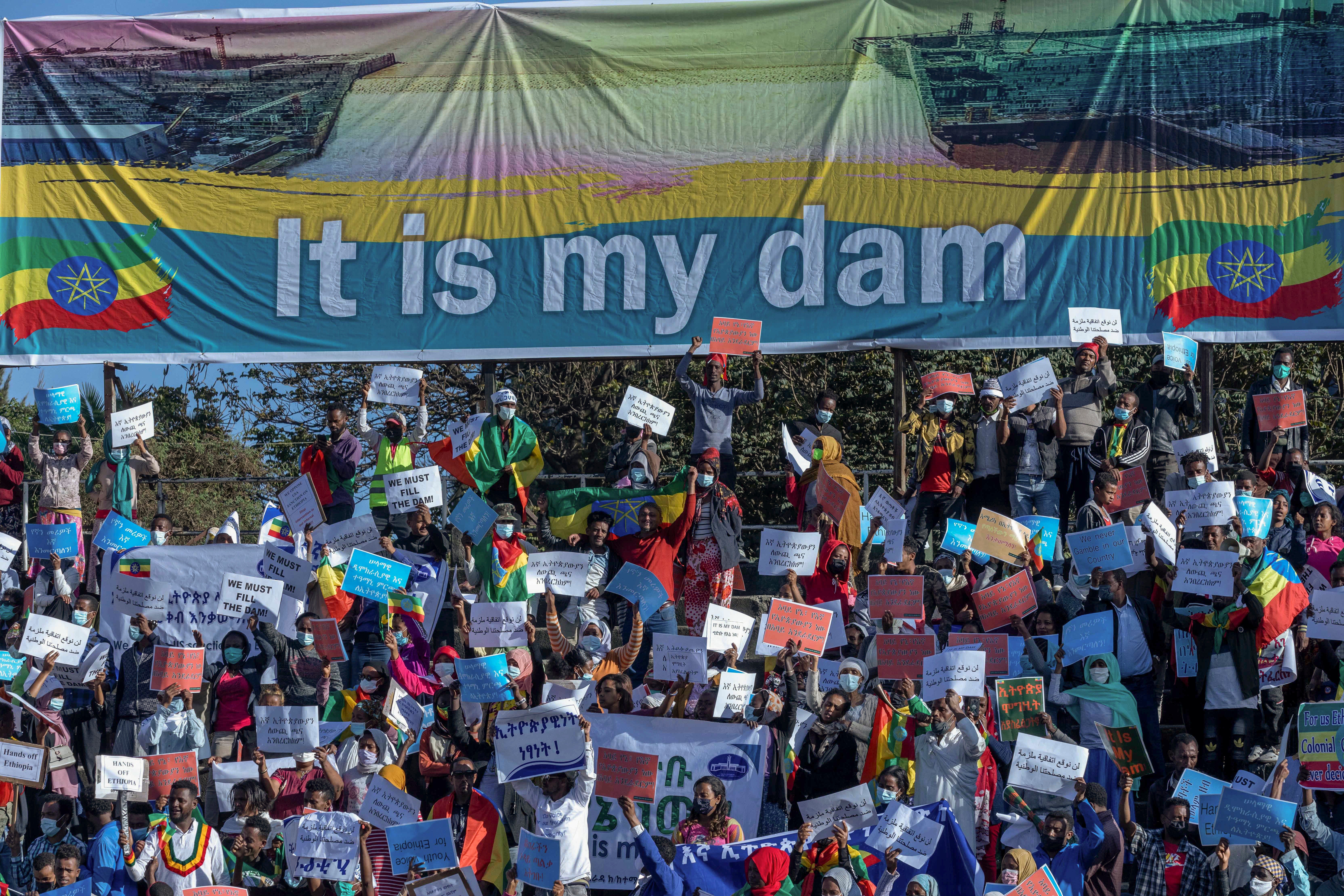Ethiopia says willing to resume dam talks with Egypt, Sudan
A senior Ethiopian official says his country is interested in resuming talks with Egypt and Sudan on a huge and controversial Blue Nile dam that will be Africa’s largest hydroelectric power plant

Your support helps us to tell the story
From reproductive rights to climate change to Big Tech, The Independent is on the ground when the story is developing. Whether it's investigating the financials of Elon Musk's pro-Trump PAC or producing our latest documentary, 'The A Word', which shines a light on the American women fighting for reproductive rights, we know how important it is to parse out the facts from the messaging.
At such a critical moment in US history, we need reporters on the ground. Your donation allows us to keep sending journalists to speak to both sides of the story.
The Independent is trusted by Americans across the entire political spectrum. And unlike many other quality news outlets, we choose not to lock Americans out of our reporting and analysis with paywalls. We believe quality journalism should be available to everyone, paid for by those who can afford it.
Your support makes all the difference.A senior Ethiopian official says his country is interested in resuming talks with Egypt and Sudan on a huge and controversial Blue Nile dam that will be Africa’s largest hydroelectric power plant.
The comment by Sileshi Bekele, Ethiopia’s former negotiator on the dam and now the country’s ambassador to the United States, came during a meeting with the new U.S. special envoy to the Horn of Africa, Mike Hammer.
A statement by Ethiopia’s foreign ministry on Friday cited the ambassador as highlighting “Ethiopia’s interest to resume the African Union-led trilateral negotiation over the GERD,” or Grand Ethiopian Renaissance Dam.
The multi-billion-dollar project is expected to bring electricity to millions of off-grid Ethiopians, but Sudan and Egypt fear it will reduce the amount of water they receive from the Nile River.
Several past rounds of negotiations among Ethiopia, Egypt and Sudan have failed. Egypt fears a quick filling of the dam will reduce its share of Nile waters and seeks a binding legal agreement in case of a dispute.
In February, Ethiopia said it had begun producing power from one unit of the dam.
Earlier on Friday, the foreign ministry spokesman Dina Mufti told reporters the third filling of the dam is on schedule this year.
“We have been saying since the start of the dam’s construction that tripartite talks will continue,” he added.